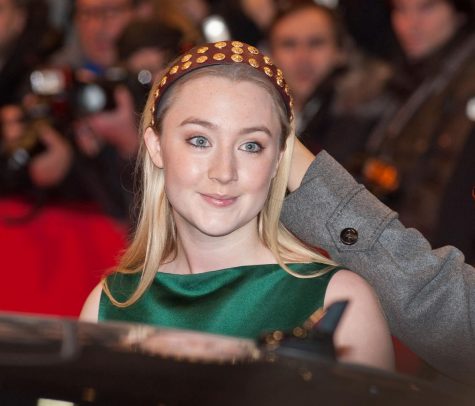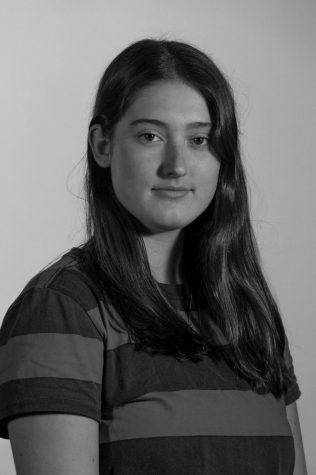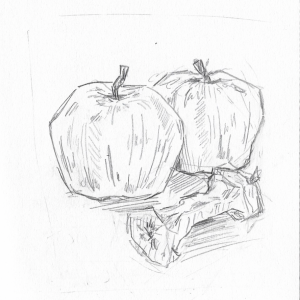Lady Bird Entertains Without Offering New Perspective
December 19, 2017
Falcon Rating: 2/4
The film Lady Bird, directed by Greta Gerwig, opens mid-conversation between 17-year-old Christine McPherson (Saoirse Ronan), self-dubbed “Lady Bird,” and her mother, Marion (Laurie Metcalf). This is not the last scene to begin mid-conversation. In fact, most do, placing the audience into passive observation as 2003, Lady Bird’s senior year of high school, unfolds. We watch as Lady Bird navigates relationships, sex, friendships, and family drama—most notably, her rocky relationship with her mother.
The movie is structured into tight, linear vignettes hyperfocused on specific experiences throughout nine months of a teen girl’s life in her hometown of Sacramento, which we immediately learn that she hates. Lady Bird displays an interesting world to exist in, but displaying it was all it did—it failed to bring the audience inside to experience everything with the characters. Watching shallow, predictable characters react to cliche life events merits no more than a two-Falcon rating from me.
Before criticizing too much, there are many splendid things to say about the movie. In fact, all the reviews so far would have you believe it’s the greatest film ever.
The vibrant colors and spunky 2003 style differs from most movies as of late. This provides nostalgia for adults now, but also a fantasy of a simple high school experience instead of the complicated social media-infused version teens are facing today.

Pictured: Saoirse Ronan (Lady Bird) at the 2014 Berlin International Film Festival.
Ronan’s performance as Christine and Metcalf as her mother were truly stellar. Their scenes together overflow with raw emotion and provide substance the audience can connect with.
However, for a movie that is about such a specific time, place, and life story, Gerwig does not spend her opening minutes laying a solid foundation. Right from the start, the movie assumes the audience is already invested in each character—especially Lady Bird—rather than taking the time to give each character more substance and prove they are worthy of attention. If you’re not strapped in from the beginning, the film doesn’t do much later on to bring you in. The result is flat characters that are never given the screen time to just be—they always have to be doing or saying something that fits into the thematic “chaos” of Lady Bird’s life.
It seems as if the film carried a checklist for high school characters: the rebellious, “I just want to get out of this town” girl, the popular rich girl with no aspirations, the nice guy, the mysterious boy, and, of course, the best friend whose problems always get ignored. The dialogue only cemented Lady Bird’s characters into their predetermined archetypes.
As a 16-year-old who’s seen a good deal of movies and television about teenagers, I was disappointed when I realized Lady Bird didn’t bring in anything new to the genre of “girl coming of age stories.” It didn’t push into any new territory or use an original perspective on teenage life. A really good film gives the audience something much deeper than just a story—it gives a message. A message can be drawn from Lady Bird, but the film easily got lost in itself, pulling the audience in too many different directions of Lady Bird’s life.
Meanwhile, all other supporting characters are dealing with serious issues that the film never dives into. It’s almost as if Lady Bird never paid much attention to these problems, only focusing on herself and her dreams for the future. Afterwards, I wondered what about this story really merited an entire movie.
The actors are experienced and offer impressive performances, making the movie a fine piece of entertainment. However, the originality and voice of the film was often drowned out by a storyline that did not feel original or real and, at times, was just boring. Some scenes felt propped up for the purpose of injecting personality into Lady Bird’s character and building for enough small zinger lines to classify the movie as a “dramedy.”
Ultimately, Lady Bird is rather forgettable, not leaving a vivid emotion or perspective. I can recognize the heartwarming story at its core, but it is not a revolutionary film, nor is it especially innovative or extraordinary.
This piece also appears in our December print edition









